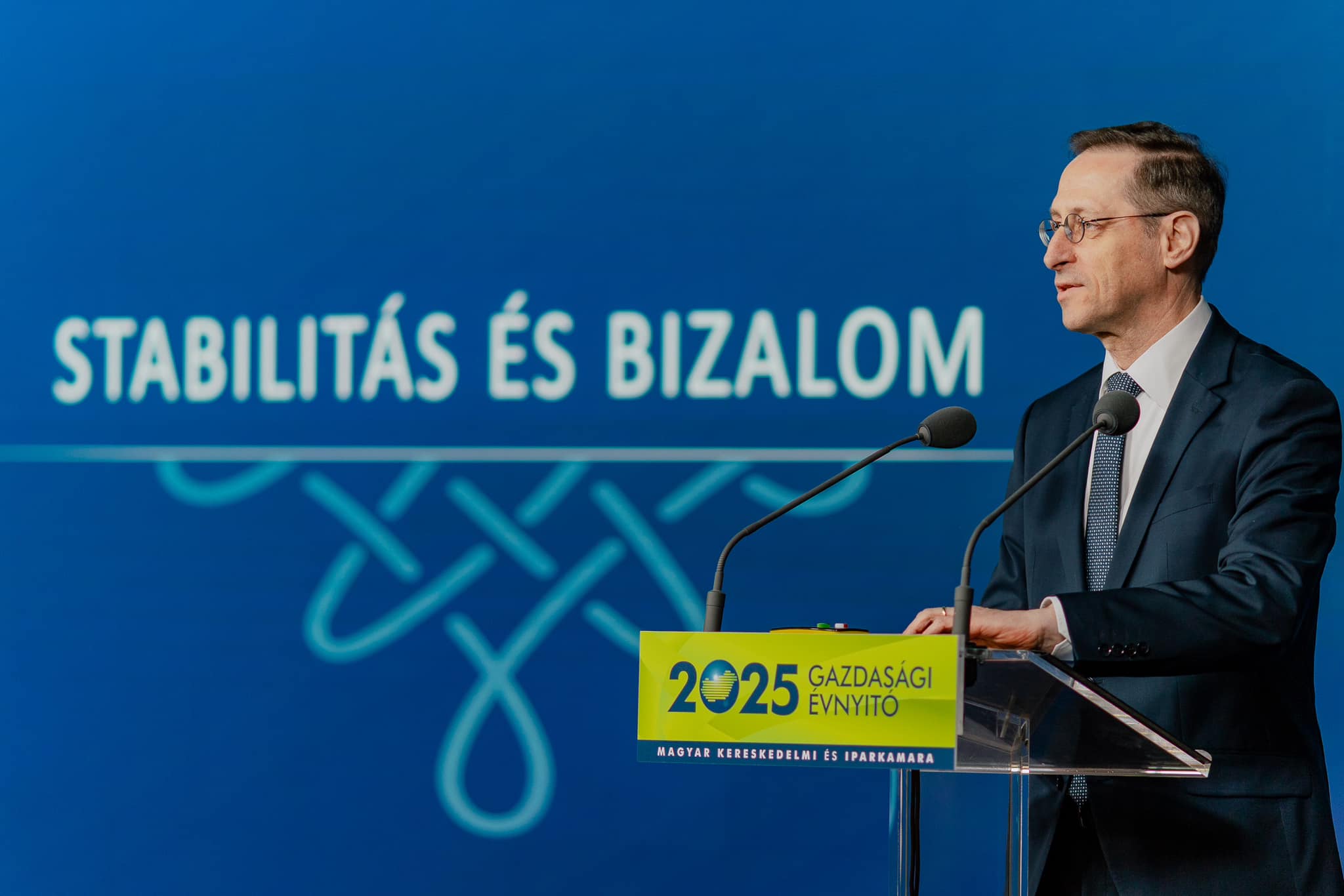Price stability ‘top priority’ of central bank, says new Governor Varga

The National Bank of Hungary (NBH) needs to concentrate on achieving and maintaining price stability amid the current economic circumstances, Mihály Varga, the central bank governor, said at a year-opener of the Hungarian Chamber of Commerce and Industry (MKIK) on Saturday.
Varga said the NBH could most efficiently contribute to reaching macroeconomic targets by achieving price stability and maintaining financial market stability.
He affirmed the central bank’s commitment to achieving and maintaining the inflation target.
Varga noted increasing uncertainty surrounding external macroeconomic factors and pointed to the need for disciplined, patient monetary policy. He added that the central bank closely follows external and internal trends and risks surrounding outlooks.
Varga acknowledged that Hungary’s economic balance had improved in spite of the unpredictable international environment, that the financial system was stable, and that the growth outlook was favourable.
He said signs of latent inflation warranted caution, adding that market services, as well as food and fuel prices, had contributed to the increase in CPI since September. He said the central bank, the government, the banking association, and the competition watchdog needed to work together to scrutinise persistently high price dynamics of market services, adding that the NBH would soon make recommendations regarding the matter.
Varga said the Hungarian economy was supported by a broad footing and highlighted data showing high employment, real wage growth, increasing consumption, high household savings and improved growth outlooks. He added that consumption and investments would be the engine of economic growth and that outlooks for higher corporate investments were favourable.
Varga said businesses faced three risks: demand uncertainty, inflation fears and administrative burdens.
He added that maintaining price stability can contribute to improved consumer confidence, a predictable investment environment, and an economic upturn.
Chamber head highlights importance of knowledge-based economic development
Elek Nagy, who heads the Hungarian Chamber of Commerce and Industry (MKIK), said businesses that invested in knowledge now would benefit in the future and pointed to the role of the chamber in supporting knowledge-based economic development at a year-opener event on Saturday.
Citing a survey conducted by think tank Makronom Intézet, Nagy said that a focus on knowledge investments and seeking export opportunities were the hallmarks of promising businesses. Those companies have dedicated staff for innovation and foster close ties with universities and researchers, he added.
Nagy said the challenge of limited resources could be addressed by building an ecosystem in which the chamber’s role would be assessing market training and filling in the gaps.
He added that getting local SMEs to harness the potential of artificial intelligence offered a good chance for cooperation between the chamber and the government, while pointing to their partnership in implementing a capital element of the Demjan Sandor Programme for scaling up SMEs.
Nagy said administrative and tax burdens were the most pressing problem for SMEs.







